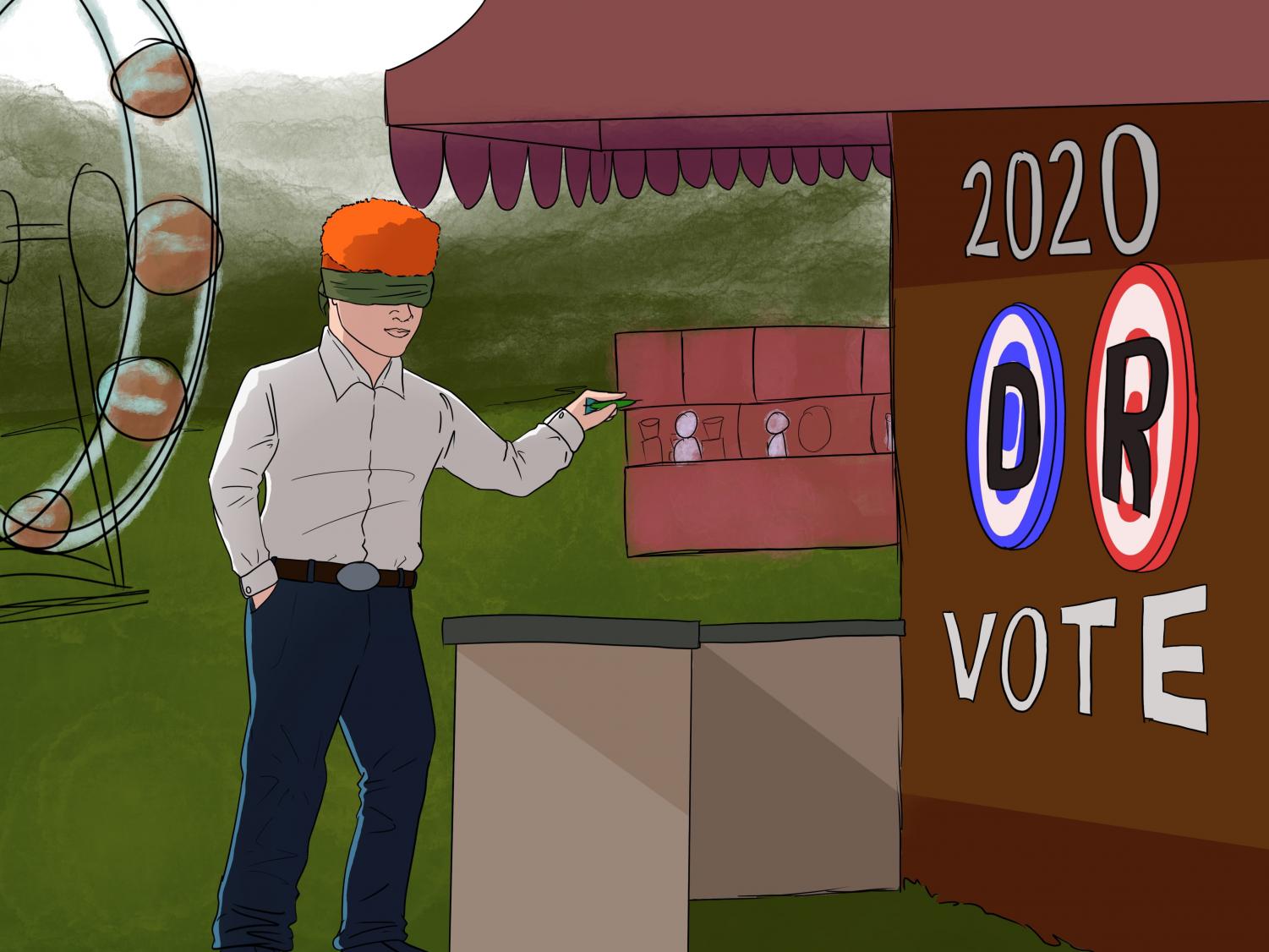Your vote does matter
February 10, 2020
“I don’t care.”
“It doesn’t matter what I think.”
“It’s not important that I vote. My vote won’t make a difference.”
All simple phrases you’ve probably heard used far too often — or maybe even said yourself. But elections are far too important to just shrug off.
Yes, politics are a divisive subject for all age groups. Nothing else can inspire an entire room to turn into animals quite like a debate over the latest polarizing issue.
For many, politics disillusions them. They see the hectic arguments as childish and naive, ultimately being over issues that won’t be affected by any of the people in the room.
And thus the concept comes around that politics doesn’t matter, that your vote doesn’t matter, that you shouldn’t care and as long as this idea is believed, it might be true.
But that simply is not true.
Voter turnout is infamously low in America, but in no case is it as low as in the youngest age group. In 2018, voter turnout for ages 18 to 29 was around half of that of ages 65+, and the reason for this is incredibly simple. Young people don’t think they need to vote. They don’t care. It doesn’t matter. It’s only as they get older that they realize how big of a mistake that is. Seniors vote because through the course of their life they have seen just how much voting matters, how one election can completely change their lives and most importantly how it matters to care.
Politics does matter. Taxes, healthcare, roads, education, even water fountains — the most commonplace systems all revolve around the complex bureaucracy of American politics. And at the core of this are the elected officials that range in scale from a neighbor to an international celebrity. Everything in the world revolves around the government in some way, and so the idea that it never affects you is just not true.
It may seem like going out to cast a single vote in a midterm election for a local representative means nothing, and it may seem like no matter who you elect, nothing will change. But all one needs to do is look at the past four years of elections to see that just is not the case.
In the second largest upset of the 2018 midterm House elections, Joe Cunningham beat Katie Arrington to become the first Democrat to represent our district since 1981. And the reason is simple: people cared about what he had to say. Stop offshore drilling and Lowcountry before party: a simple message that resonated with voters enough to defeat a Republican in a Red District.
Why is this important? It shows your vote does matter. It may not be a president, it may not even be a senator, but every two years every House member in the country goes up for election, and every single one of those members matters.
But ultimately, the real problem is far larger, it is not that people truly don’t believe it matters — it’s that they don’t care. They don’t inform themselves, they don’t look into what politicians say, they don’t form their own opinions of the world. And so when asked to vote, chances are they have not even registered.
If you haven’t registered, here’s a small explanation. If you have a valid driver’s license, go to scvotes.org. From there you simply fill out the form and you are registered. As long as you will be 18 by the November election, you can register at any time and vote in primaries.
And even if you are under 18, you can still take action. There is no age requirement to volunteer for a campaign, or even just to start looking into candidates and issues to possibly support. Teenagers need to be informed. They need to form their own views on the world, not just follow others. And they can only do this by looking into everyone on the ballot before they step into the voting booth, by reading the news, and most importantly, by caring about it.
So as long as teenagers believe they can’t change anything, they won’t. But if enough people believe in a cause, and enough of them vote for it, they might actually be able to make a difference.
